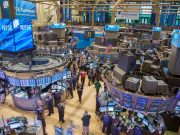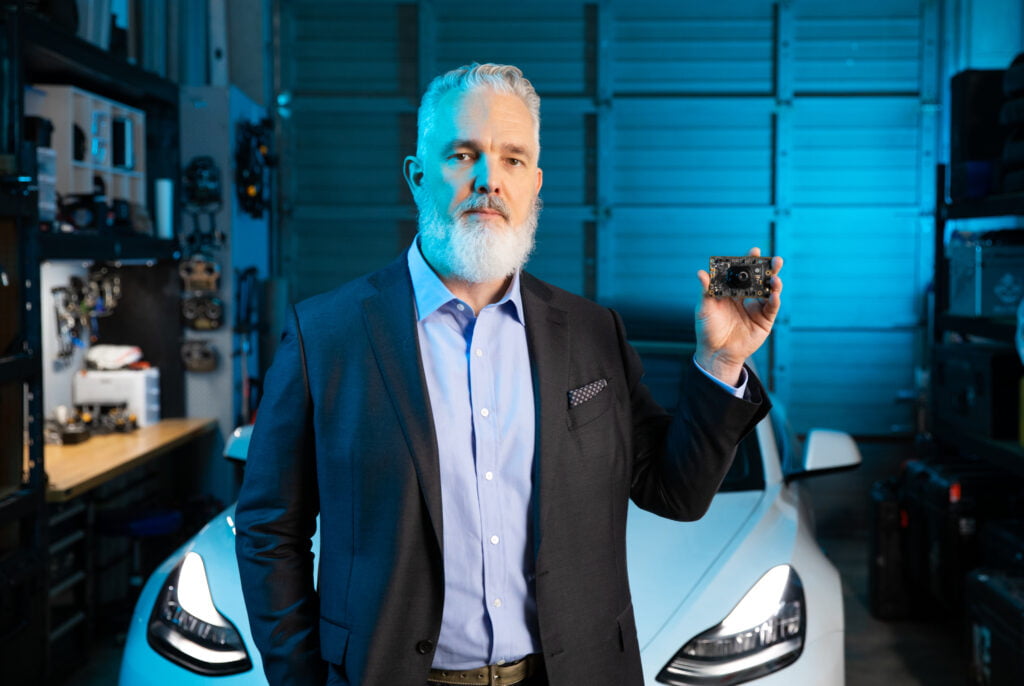Next-generation auto technology has become one of the hottest investing themes on Wall Street. Auto and tech companies have poured billions of dollars into the race to gain market share in what will most certainly be massive markets for electric and autonomous vehicles. AVs are no longer a figment of imagination in the era of artificial intelligence (“AI”) and are radically transforming travel.
The AV technology is based on advanced driver-assistance systems (“ADAS”)—including emergency braking, backup cameras, adaptive cruise control, and self-parking systems. The robot-driven vehicles use AI to enable cars to navigate through traffic and handle complex situations.
Favorable regulatory framework and increasing government funding are expected to play a crucial role in accelerating the self-driving car market’s growth in the coming years. Governments across the globe are administering supportive regulations to enhance the adoption of AVs. For instance, the U.S. government has started procuring AVs for defense applications, while the U.K. government has granted permission to run self-driving cars on roads.
Per a report by Million Insights, the global autonomous vehicle market demand is projected to account for 4.2 million units by the end of 2030, witnessing a CAGR of more than 63% during the forecast period. Additionally, per a report by Research and Markets, the global autonomous vehicle market is estimated to value $2,044.9 billion by 2030, expanding witnessing a CAGR of 39.1% from 2020 to 2030.
Given the upbeat projections, there are a handful of self-driving stocks, which are considered as a can’t-miss investment for the long term in next-generation auto technology.
The China-based multinational technology company Baidu Inc. (BIDU) is one of the largest AI and Internet companies in the world. In 2019, Baidu entered a partnership with China-based state-owned carmaker, FAW Group, to develop the Hongqi EV AI-powered taxi, being its first mass-produced robotaxi in China. The vehicle is still being used in unmanned driving tests in multiple cities, including Beijing and Guangzhou. Reportedly, its lineup of 300 driverless vehicles logged 1.2 million miles in 13 different cities.
A few months back, Baidu rolled out its first fully AI-powered car as part of its Apollo project. The Baidu Apollo integrated AI system allows vehicles to drive independently, without a safety driver inside the vehicle. To ensure public safety in extreme road conditions, Baidu integrated 5G-enabled teleoperation into its vehicles.
Shares are 56% higher this year following the company’s news of a joint venture with Geely (GELYY) to produce autonomous, electric vehicles.
These moves have, once again, got investors excited about BIDU’s growth potential which is evident from its multiple expansion in recent months. Despite recent gains, BIDU’s valuation is reasonable compared to its peers.
Tesla (TSLA) is set to release its full self-driving (“FSD”) driver-assistance system as a subscription service in early 2021. Tesla cars are equipped with a standard Autopilot —a driver-assistance feature that can brake, accelerate and steer automatically. The FSD package, however, gives added capabilities that enable cars to self-park, change lanes, and recognize stop signs and traffic lights.
In October, Tesla launched the beta version of the long-awaited feature to some owners. Autopilot Hardware 3.0 is the latest upgrade to the company’s FSD hardware, which happened early last year, and it has all the components necessary for FSD features. Within this upgrade, Tesla began equipping its new vehicles with a new, custom-built computer designed for partially-autonomous and fully-autonomous driving. The new hardware enabled Tesla to demonstrate further progress toward full autonomy. The company plans to use Models S, X, 3 and Y as future robotaxis.
TSLA shares trade at a premium with a P/E ratio of 1,226. The stock also saw a more than 700% gain in 2020, leaving some analysts stunned and baffled. However, this hasn’t scared away investors, as evidence of recent dip buying shows.
RELATED : S.A.V. ELON MUSK’S NEXT BIG PROJECT
New Ford (F) CEO Jim Farley is taking an aggressive approach to autonomous and electric vehicles. Farley took over in October, and he recently announced that Ford would be raising its investments in AV and EV tech to $29 billion through 2025.
In October, Ford also unveiled its fourth-generation self-driving test vehicles based on the Ford Escape Hybrid crossover. Ford is adding the new vehicles to its current AV test fleets operating in Austin, Texas; Detroit; Miami; Palo Alto, California; Pittsburgh; and Washington, D.C. Ford and partner Argo AI plan to launch a self-driving commercial business in 2022.
The consensus growth rate estimate for Ford year over year is 139%. Moreover, of 12 analysts offering recommendations for the stock 5 rate the stock a Strong Buy. There are also 5 Hold recommendations and 1 Sell recommendation for F stock.
After receiving permission from the state of California to test Level 4 AVs on public roads in October, General Motors’ (GM) Cruise AV unit began testing fully driverless vehicles in San Francisco in December 2020. In January, software giant Microsoft (MSFT) announced a long-term partnership with GM to give Cruise access to the company’s software and cloud services expertise as part of the push to commercialize AV technology. Microsoft’s $2 billion investment in Cruise values the company at $30 billion, nearly 40% of GM’s current market cap.
GM stock is up 50% for the past 12 months and trades with a trailing twelve month P/E of 10.69.
When semiconductor giant Intel (INTC) acquired Israeli self-driving tech company Mobileye for $15.3 billion back in 2017, it immediately became a major player in the AV space. Mobileye is the world’s leading producer of advanced driver-assistance systems. One of Mobileye’s major advantages is its data. The company currently has data-sharing agreements with six partners, including Volkswagen, BMW and Nissan. Mobileye reportedly gathers roughly 5 million miles of data every day. At the Consumer Electronics Show in January, Mobileye said its laser sensors will make self-driving cars affordable enough to mass-produce and sell to retail buyers by 2025.
INTC shares are already up more than 25% for the year, but we think there is plenty of runway ahead for the stock.
Should you invest in Baidu right now?
Before you consider buying Baidu, you'll want to see this.
Investing legend, Keith Kohl just revealed his #1 stock for 2022...
And it's not Baidu.
Jeff Bezos, Peter Thiel, and the Rockefellers are betting a colossal nine figures on this tiny company that trades publicly for $5.
Keith say’s he thinks investors will be able to turn a small $50 stake into $150,000.
Find that to be extraordinary?
Click here to watch his presentation, and decide for yourself...
But you have to act now, because a catalyst coming in a few weeks is set to take this company mainstream... And by then, it could be too late.
Click here to find out the name and ticker of Keith's #1 pick...














